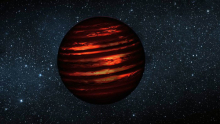Clockwise from top left: Robert Brandenberger (Physics), Christian Genest (Mathematics and Statistics), Joel Kamnitzer (Mathematics and Statistics), Bärbel Knäuper (Psychology), Milica Miočević (Psychology), Adrian Liu (Physics), Nagissa Mahmoudi (Earth and Planetary Sciences), and Galen Halverson (Earth and Planetary Sciences)
Eight Faculty of Science professors are among this year’s cohort of Distinguished James McGill Professors, James McGill Professors, and William Dawson Scholars.












